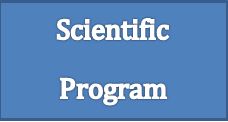
Arpa Petchsomrit
Prince of Songkla University, Thailand
Title: Development and evaluation of sustained release alginate beads for delivery of self-emulsifying resveratrol
Biography
Biography: Arpa Petchsomrit
Abstract
Resveratrol is a polyphenol compound found in grapes and other food products. It exhibits numerous pharmacological activities including anti-oxidant and anti-carcinogenic properties. Therapeutic application of resveratrol is limited due to its low aqueous solubility. The purposes of this study were to develop self-emulsifying resveratrol sustained release alginate beads and assess anticancer
activity on gastric cancer cells. Floating alginate beads were prepared by ionotropic gelation method and used calcium carbonate as gas forming agent. Use of different concentrations of sodium alginate, self-emulsifying resveratrol, pore forming agent (Kollicoat® IR), and drying method showed different effects on physical properties and in vitro drug release in each bead formulation. All formulations floated immediately and remained floating over 72 h. The optimized formulation consisted of 2% w/v sodium alginate and 15% w/w self-emulsifying resveratrol. Freeze dried beads and oven dried beads showed sustained release profiles and values of cumulative release profiles in 8 h were 97.22% and 84.60%, respectively. Conversely, liquid self-emulsifying resveratrol gave immediate release approximately 80% in first hour and almost completely released (99.75%) in same period. Anticancer activity on AGS cells
of both floating self-emulsifying resveratrol beads and liquid self-emulsifying resveratrol (IC50 23.53±0.66 and 23.99±1.05 μg/ml, respectively) were equivalent to that of unformulated powders dissolved in DMSO (IC50 23.75±0.53 μg/ml). Consequently, alginate bead preparation process did not have any effects on pharmacological activity. This study disclosed that floating self-emulsifying beads could enhance the solubility, prolongs drug release, and may have potential for gastric cancer treatment.

